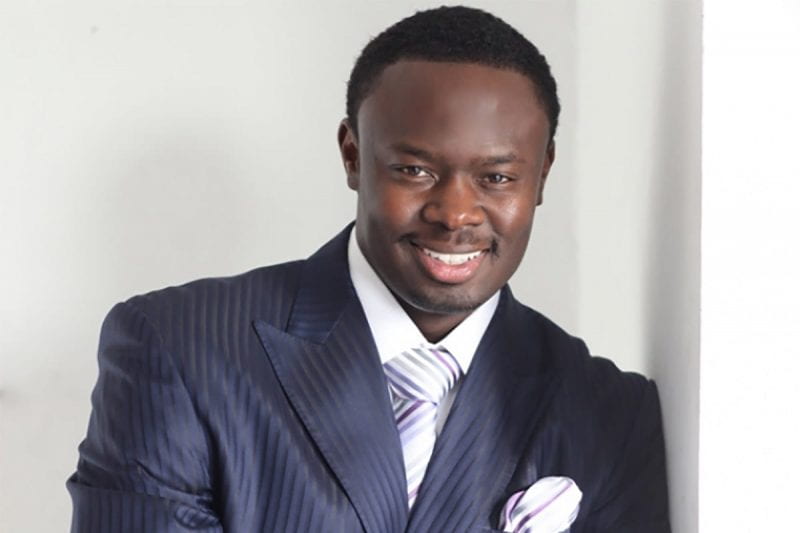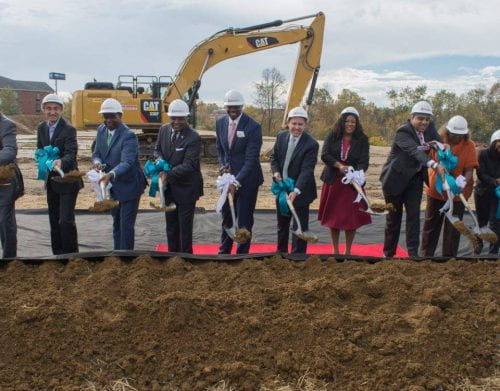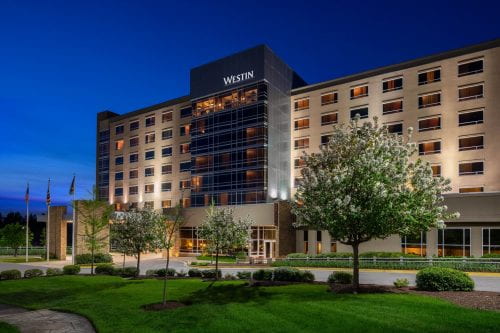
Being invited to speak at Cornell’s School of Hotel Administration is something of a rite-of-passage for those working in the hospitality world. This is especially true for Evens Charles, who presented this past Thursday at the Baker Program’s Distinguished Speaker Series. Evens was invited to share some of the successes and challenges along his impressive upward trajectory – from impoverished 1st generation Haitian American, to commanding a nine-figure hotel real estate portfolio with properties up and down the East Coast.
Evens was raised in Washington, D.C. and attended Temple University as an undergraduate. He aspired to leverage his athletic skills in order to earn a degree by playing Division 1 football, but this plan was foiled when he was un-recruited. Despite the setback, his family was able to put up just enough money together to pay for his first three semesters. Evens, as we learned throughout the evening, is exactly the type who thrives in these types of do-or-die scenarios, and eventually he earned his scholarship by winning a starting position on the team. Thereafter it became a recurring theme in his life and career that he would have no easy path to success, whether it be in earning his master’s degree in education, landing his first real estate deal, or forging relationships with two of the industry’s top brands. Today Evens has become an indispensable player in the D.C.-Virginia-Maryland hospitality world and a role model for underrepresented minorities in commercial real estate.

The Baker Program is accustomed to self-made success stories from visiting real estate titans. Indeed, much of the allure of commercial real estate is its ability to turn those with the right mix of skills and temperament into powerful movers of politics and the economy. Evens touched on this point early in his presentation when we remarked that he found it difficult to teach how to be successful in entrepreneurship and real estate. He proceeded to break it down into macro-skills and micro-skills, which include old standbys like work ethic and perseverance, but he also expounded on the basic innateness of the trade through a re-telling of his earliest deals. Developers of seven-figure hotel deals, he pointed out on his slide deck, are no different from those flipping single-family homes save for a couple of zeros, and this is exactly how Evens got his start as a 25-year old.
Evens bootstrapped his first few deals by saving commission checks from selling educational materials, and turned a $1,000 investment into a $25,000 profit on his first home renovation. He had never seen that type of money before, but his uncommon discipline and self-education encouraged him to reinvest these funds into his next deal rather than spend it. He continued this winning strategy for several years until he had eventually saved up enough to finance his first hotel deal – a distressed, historic property in downtown Atlanta. Again, using high leverage and the benefits of government-backed SBA financing, Evens was able to reposition the property and eventually earn a coveted Marriott flag. The proceeds from selling this property (which included many unforeseen challenges along the way) helped launch Evens into an entirely new class of real estate professional.
These days, Evens pursues a much different strategy than that of his earlier deals and readily admits that he was not initially well-versed in the nuances of hotel development and operations. One of the perks of having established himself as a seasoned developer, and having earned the credibility of the industry’s best brand partners, is that he no longer has to endure as much risk as he did in earlier days. At first, he was using up to 97% leverage in order to make the most of his modest capital position. Now he understands the riskiness of such leverage and rarely likes to exceed an LTV of greater than 60%, without recourse. He also explained the value of using deal structures to align incentives and maximize returns – including collecting fees for asset management, development, and acquisitions.

Evens presentation included many nuggets of wisdom, but one of the most important takeaways of the evening was his encouragement to find the right partners. It was not particularly difficult to syndicate capital for his first major deals, but he regrets not becoming familiar and friendly with those he would be sharing assets with for at least the following couple of years. Having been burned by bad partnerships and partnership structures in the past, Evens was appreciative of having found a network that shares his interests. Perhaps the best indication that he has found the right community is when he looked up during our lunch at the Statler Hotel, only to spot his current hotel’s equity partner sitting down at the table next to us. Tammy Jones, co-founder and CEO of Basis Investment Group, and Kirk Sykes, senior vice president at New Boston Fund, who are both also board members of the Real Estate Executive Council (REEC) in which Charles is an active member, exchanged a warm greeting and later joined our program as Charles told his story. Without a doubt, these two will continue to be instrumental in his goal of reaching $1 billion of assets under management within the next few years. The Baker Program would like to thank Evens for taking the time to share his knowledge and experience and we look forward to seeing the continued influence he will have on minority leadership and hospitality real estate in the U.S.
